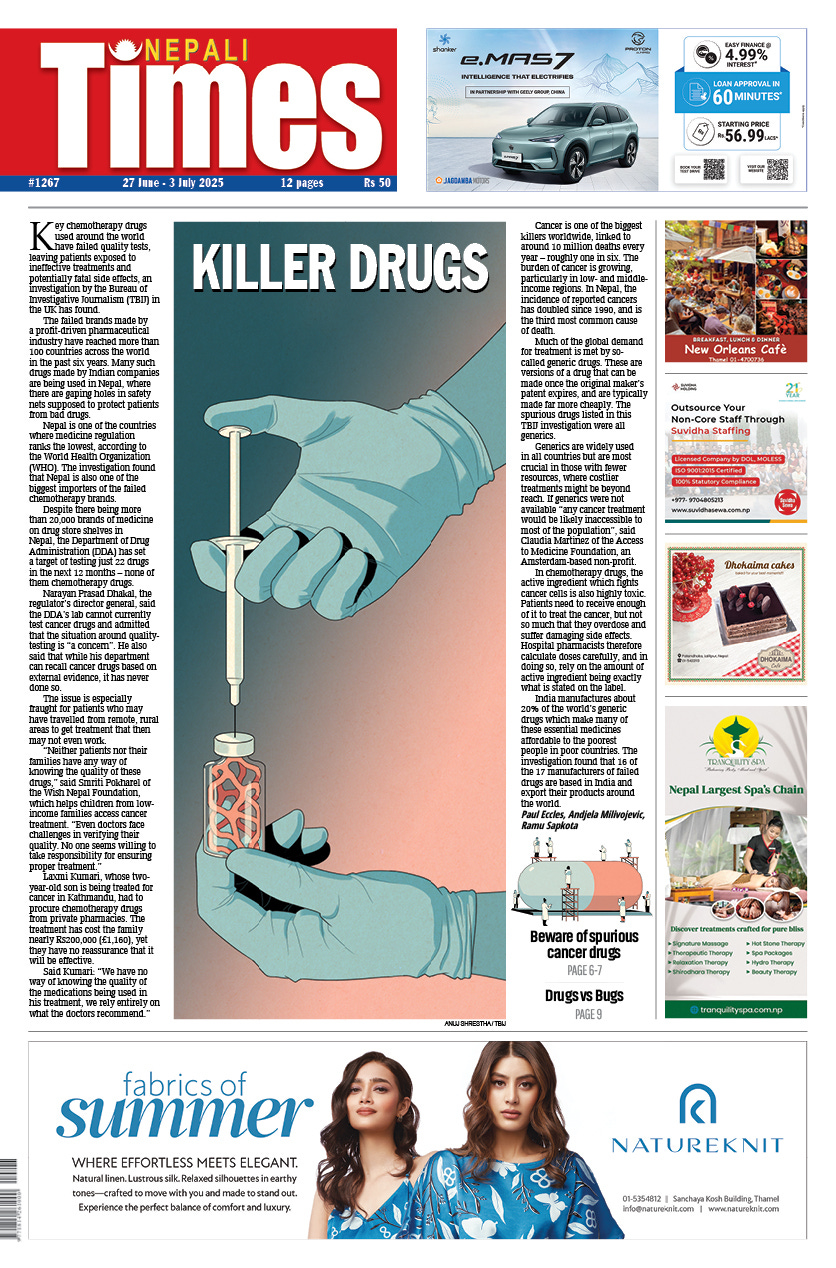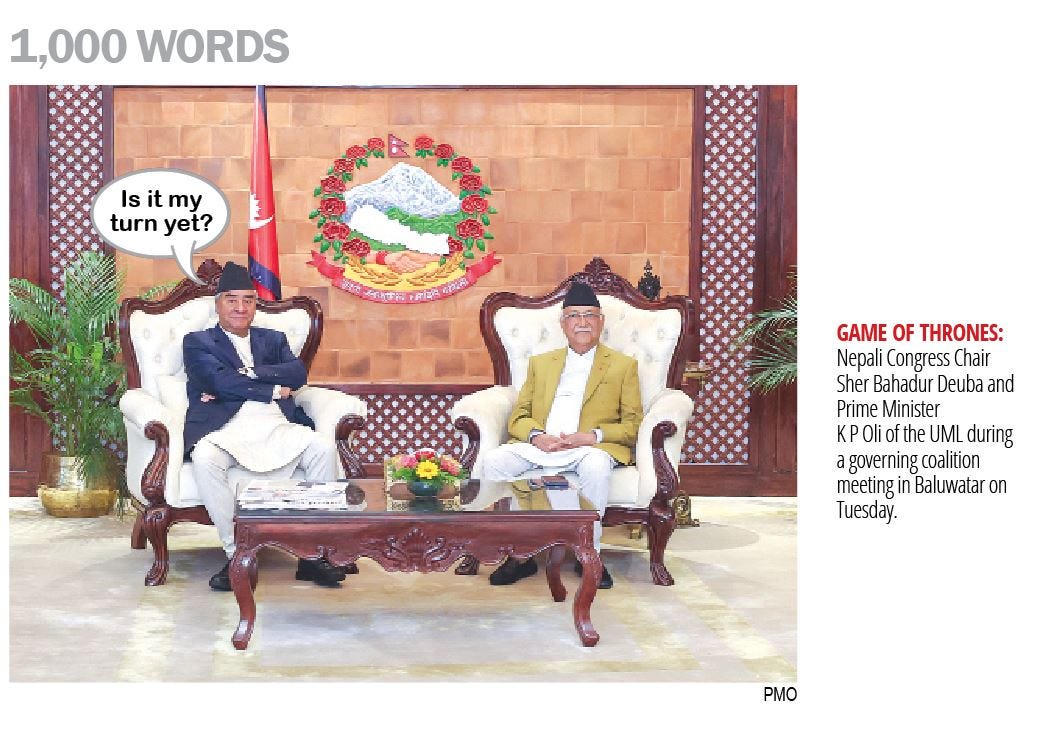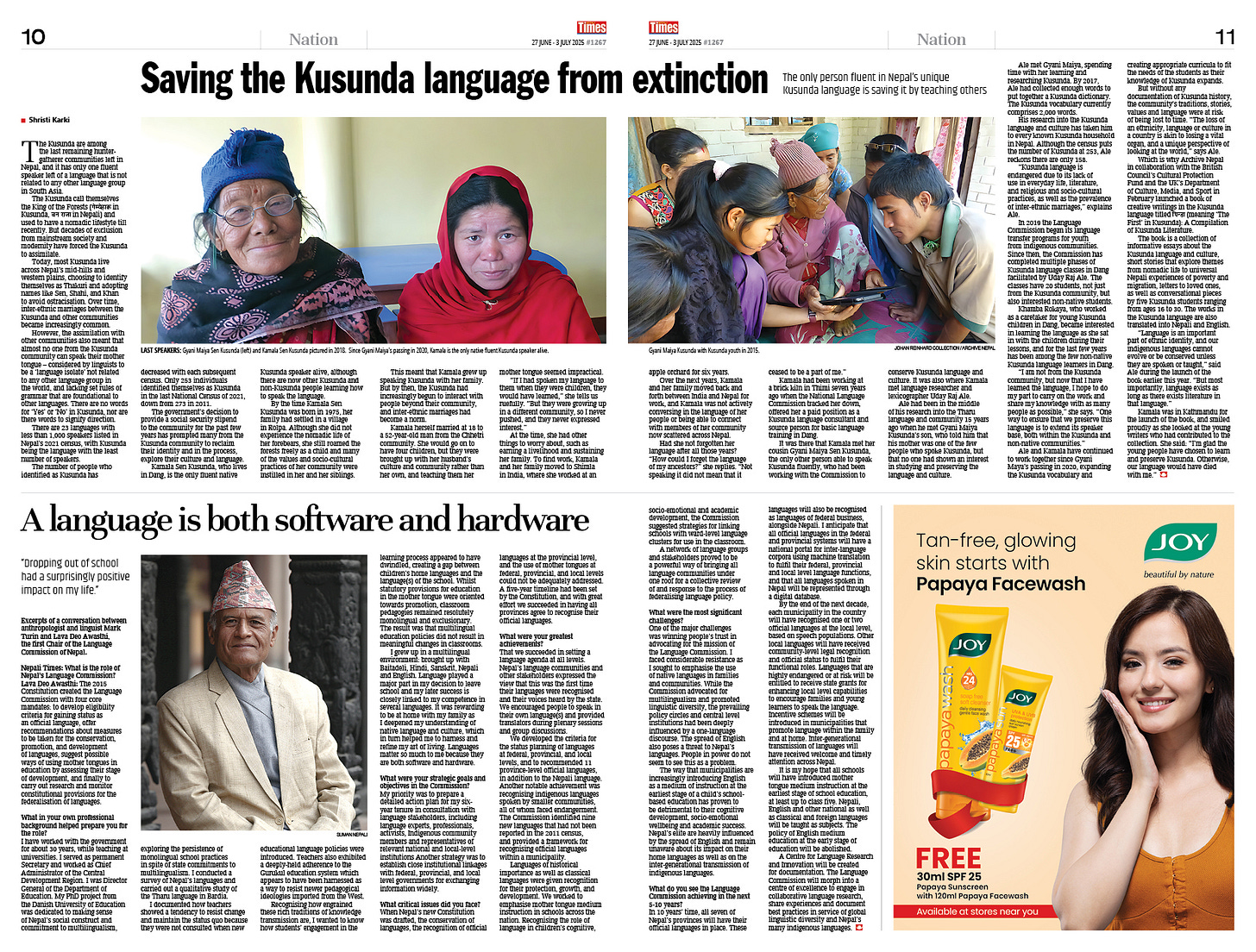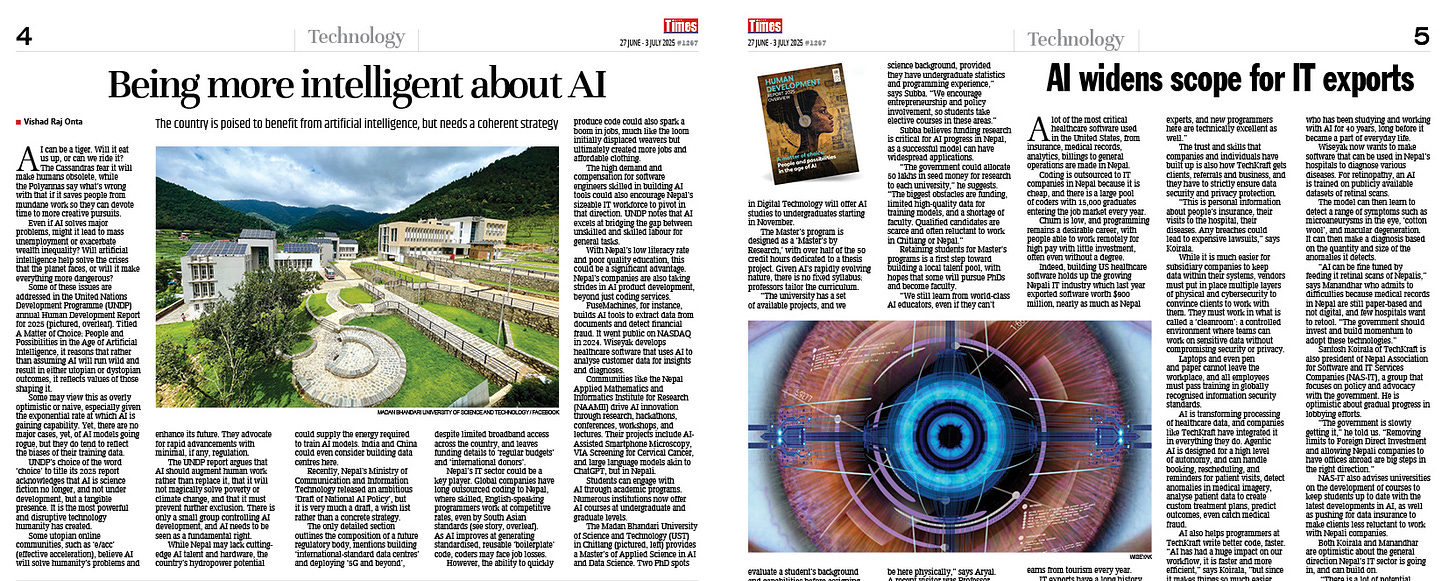Who says nothing of note happened during the past 18 months of the Oli-Deuba collision government?
The country’s first-ever street overpass was inaugurated at Gwarko amidst a grand ceremony befitting this national accomplishment. So what if two contractors absconded with the moolah, and the project was four years late? It is the thought that counts.
And the Kathmandu-Tarai fast track is on track. Imagine if it was off-track. Gautam Buddha International Airport is served almost exclusively by its namesake Buddha Air, even after all international operators opted out. Pokhara International Airport has only one international flight a week, but what if there were none?
And we cannot thank the soon-to-be six-time prime minister for reacting with lightning speed to a complaint citizens of Nagarkot made during his first tenure in 1996 to fix the road. He sent strict instructions to the Secretary of the Ministry of Metaphysical Planning and Highway Robbery to order the Dept of Rhodes to sign an agreement with Pappu Construction, Inc, who then got the sub-contractor to order labourers to cover the pothole in front of Soaltee Nagarkot with garbage, and turned said pothole into into a speed bump. This is a 100% improvement on last fiscal year when no potholes were filled, and a timely reminder that we live in a functional and accountable democracy.
We have to try harder to see the glass as half full so that we can quaff the remaining vodka in one gulp. And behind every dark cloud is a silver lining, as we see from the story on page 10-11 about the Kusunda language.
Kusunda is so endangered that it is only one speaker away from extinction. The language is not related to any other language in the subcontinent, and probably has aboriginal antecedents. But a language activist has taken it upon himself to teach Kusunda and non-Kusunda people the language. Read this encouraging story by Shristi Karki (Saving Kusunda Language from Extinction), as well an interview by linguist Mark Turin with the first head of Nepal’s Language Commission Lava Deo Awasthi about preserving Nepal’s linguistic diversity (A Language is Both Software and Hardware).
On page 4-5 Vishad Onta reviews the UNDP’s 2025 Human Development Report which presents the view that Artificial Intelligence is neither utopian or dystopian, but will reflect the values of those who shape it. Another story (AI Widens Scope for IT Exports) looks at Nepali tech companies which are now harnessing the power of AI to write better code for softwares they export, especially in the medical sector.
And speaking of the medical sector, this edition of Nepali Times on page 1, 6-7 carries the results of an international investigation by UK-based The Bureau of Investigative Journalism to expose the trade in substandard anti-cancer drugs that are costing lives in many countries , including Nepal (Beware of Spurious Anti-cancer Drugs).
The coverage is accompanied by another story by reporter Dhanu Bishwakarma about a court case involving the family of a mother who died in a Kathmandu hospital who was allegedly administered a fake chemotherapy drug supplied by a dealer in India (Drug Dealers Push Fake Medicine).
Finally, on page 9 we cover a recent report urging countries like Nepal to prioritise vaccines to prevent infections that are caused by bacteria resistant to antibiotics (Drugs vs Bugs).
The Nepali Times newsroom team will be online with more stories that touch all our lives.
Till next week,
Kunda Dixit







